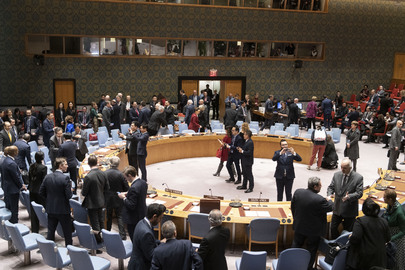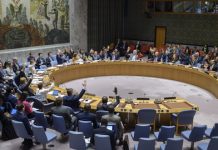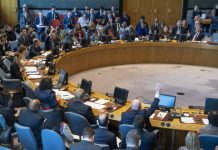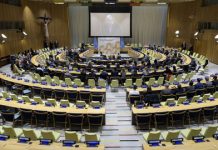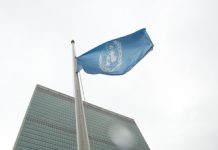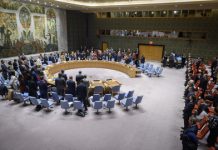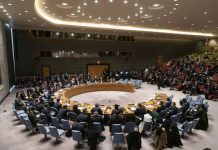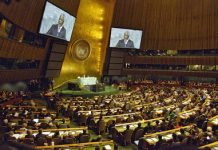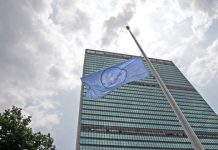Lebanon crisis: UN human rights office calls for probe into Israeli strike
With no let-up to the ongoing Israel-Lebanon conflict, the UN human rights office on Tuesday called for an independent probe into an Israeli airstrike that hit an apartment block in northern Lebanon that left a reported 22 dead.
Twelve women and two children were among those killed, according to the Office of the High Commissioner for Human Rights (OHCHR), which highlighted concerns about the laws of war and principles of distinction, proportion and proportionality regarding the strike.
Since war erupted in Gaza last October and Hezbollah fighters stepped up rocket attacks on Israel, prompting retaliatory strikes by Israel, 2,200 people have been killed in Lebanon.
More than 10,000 have also been injured amid Israeli airstrikes and Israeli evacuation orders that have left more than 25 per cent of the country “under a direct Israeli military evacuation order”, said Rema Jamous Imseis, UNHCR Director for the Middle East.
This has led to desperate scenes on Lebanon’s border with Syria, where more than 283,000 people have now crossed, she said:
“We saw women with – two women – with about nine children between them who described their journey on foot for 10 hours to reach that point. They had seen directly the impact of the violence, an airstrike had hit a home 100 metres from their home and they fled, literally, with just the clothes on their backs.”
Historic drought in Southern Africa leaves millions facing hunger, warns WFP
Nearly six and a half million people in Southern Africa are starving because of an “historic drought” linked to last year’s El Niño, UN humanitarians said on Tuesday.
In an appeal for help, the World Food Programme, WFP, said that more than 27 million people’s lives from Lesotho to Zimbabwe have been devastated, leaving 21 million children malnourished.
A record five countries have declared a national disaster because of the drought and requested international assistance: Lesotho, Malawi, Namibia, Zambia and Zimbabwe – but Angola and Mozambique have been hit hard, too.
For many communities, this is the worst food crisis in decades, said WFP spokesperson Tomson Phiri:
“What makes it worse is that October is just the start of the lean season, the peak of the hunger season is January, so things will get worse before they get better…I have lived most of my life in Southern Africa, experienced the drought in 1992 in Zimbabwe, successive droughts in the early 2000s, 2015, 2016, this is worse.”
Mr. Phiri explained that crops have failed, livestock have died and children are lucky to receive even one meal per day, in the worst-hit households.
To help, the UN agency needs $369 million but it has only received 20 per cent of that amount.
Two billion women without access to social protection – UN Women
A staggering two billion women lack access to basic social welfare help that many of us take for granted, such as healthcare or pensions, and it’s creating a massive and global poverty crisis.
That’s the message from UN Women, which has published a report highlighting how women and girls receive fewer benefits compared with men.
The study shows that the problem has worsened in most developing regions of the world, too, meaning that half of the population is overrepresented among the poor at every stage of life.
The largest disparity comes during childbearing years and according to UN Women, over 63 per cent of mothers still give birth without access to maternity benefits. This figure reaches more than 90 per cent in sub-Saharan Africa.
This lack of financial support places women at an economic disadvantage and compromises their health and well-being – as well as their children’s, perpetuating poverty across generations.
Some countries have started to tackle the problem, UN Women said, citing the example of Mongolia, where maternity leave benefits have been extended to informal workers, such as herders and the self-employed. Paternity leave has also been strengthened there to support gender equality in caregiving responsibilities.
Daniel Johnson, UN News
Music composed and produced by Joachim Harris. All rights reserved.
Source of original article: United Nations (news.un.org). Photo credit: UN. The content of this article does not necessarily reflect the views or opinion of Global Diaspora News (www.globaldiasporanews.com).
To submit your press release: (https://www.globaldiasporanews.com/pr).
To advertise on Global Diaspora News: (www.globaldiasporanews.com/ads).
Sign up to Global Diaspora News newsletter (https://www.globaldiasporanews.com/newsletter/) to start receiving updates and opportunities directly in your email inbox for free.


